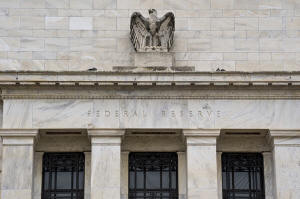|
The
minutes, released Wednesday, said that the Fed could keep its
benchmark interest rate unchanged if inflation remained
stubbornly elevated. And they said it could cut its rate if
growth slowed and unemployment rose. The minutes were for the
Fed's March 18-19 meeting.
But if both happened at the same time, the Fed “may face
difficult tradeoffs,” some of the 19 officials on the central
bank's interest-rate setting committee said. Rising unemployment
can often lead to a recession, when the Fed would normally slash
its key rate to support more borrowing and spending and
stimulate the economy. Yet Fed officials would likely be
reluctant to cut if inflation rose, because it usually seeks to
cool higher prices by keeping its key rate unchanged — or even
raising it if necessary.
The minutes reflect discussions among Fed officials before
President Donald Trump announced sweeping tariffs April 2 on
nearly 60 countries, along with a 10% tariff on nearly all
nations. Trump said Wednesday that he had paused the tariffs for
90 days, though the 10% duty would remain, as well as a huge
125% tax on imports from China.
The minutes also said that the tariffs that had been announced
prior to the March meeting — on steel, aluminum, and on many
imports from Canada and Mexico — had already caused many
companies to delay hiring and raise prices.
Several Fed officials, according to the minutes, said that their
business contacts “were already reporting increases in costs,
possibly in anticipation of rising tariffs,” or “had indicated
willingness to pass on to consumers higher input costs that
would arise from potential tariff increases.”
Many of those same business contacts “reported pausing hiring
decisions because of elevated policy uncertainty,” the minutes
said.
In remarks last Friday, Fed Chair Jerome Powell said the April 2
tariffs would likely raise inflation and slow growth. He also
noted that their impact would likely be temporary, but said
there was a heightened chance that they could persistently raise
inflation.
Inflation has come down sharply from its peak in June 2022, but
it has remained stubbornly elevated even before the imposition
of duties. Consumer prices were 2.8% higher in February compared
to a year ago, though March figures will be released early
Thursday and are expected to show inflation declining to 2.6%.
All contents © copyright 2025 Associated Press. All rights reserved

|
|




